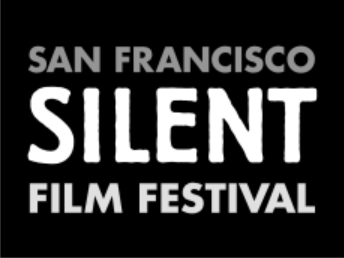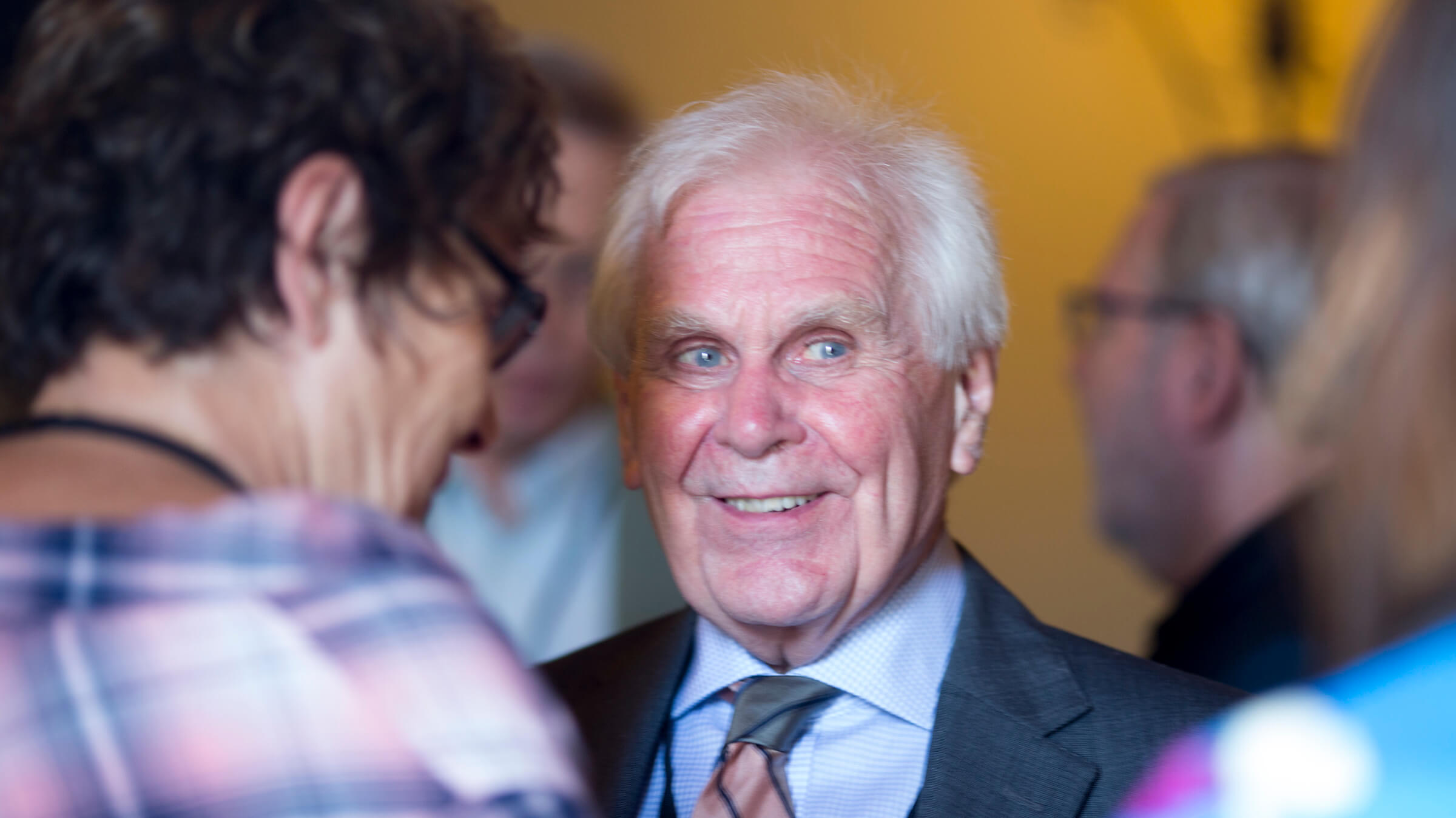A Personal Tribute to the 2016 Silent Film Festival Award Winner David Robinson
Back in the 1950s and ’60s, Liam O’Leary was one of the most significant figures in silent film preservation. Not only was he deputy curator at the British Film Institute’s National Film Archive, he was also mentor to a number of youthful enthusiasts such as myself (I was then fifteen). He was the man who, having spotted Abel Gance visiting London in 1954, made sure I got to meet him even though it meant my playing truant from a school exam. And that same year, he introduced me to David Robinson.
Like Liam, David worked for the British Film Institute, writing for two of its publications, Sight and Sound and the Monthly Film Bulletin. One Sunday afternoon, David was setting out for a walk when he bumped into Liam who commanded, “Come with me. I’m going to take you somewhere.” And that ”somewhere” was my parents’ flat in Swiss Cottage, London. I was expecting Liam, who had asked to see my 9.5mm version of Abel Gance’s Napoleon (which I had succeeded in expanding to a whole six reels), and I was thrilled to be able to show it to another grownup who worked in films. Liam had seen it and been deeply impressed. But I knew nothing of this friend of his.
David was only twenty-four, charming, as good-looking as Leslie Howard, and surprisingly knowledgeable—he was building up a collection primarily devoted to pre-cinema, which was rapidly spreading into the silent era. His reaction to Gance’s film was more perceptive and enthusiastic than I could have hoped for. We have remained friends ever since.
After leaving the BFI, David became one of the top film critics in London, first for The Financial Times and then for The Times itself—higher than which you could not go. When I directed the controversial It Happened Here (1964), about what might have happened if Britain had been occupied by the Nazis, he was one of the critics who signed a letter protesting censorship of the film. He also wrote an introduction to my book about the making of the film. It was no tactful publicity piece. It was so brilliantly written, so critical—in the best sense—that whenever I look back at it, I am struck by yet another point he got absolutely right.
For Mamoun Hassan, the adventurous head of Britain’s now defunct National Film Finance Corporation, David was the first film critic he ever encountered. At a meeting at Friends’ House, Euston Road, a young radical jumped up and demanded to know how David could be familiar with the working class since he was born into privilege and went to public school and Cambridge. David, failing to mention that he actually came from quite humble origins and went to grammar school, said simply “You may be right.”
“Ever since then,” Mamoun recently told me, “I’ve been an admirer. And I’ve always thought he was our best critic.”
David educated many of those of my generation who attended the National Film Theatre. Believe it or not, Laurel and Hardy were then comedians we saw only at newsreel theaters. The critical establishment considered them scarcely worth watching until David put on a season and we all emerged weak from laughing. He did the same with Buster Keaton, staging an NFT season in the 1960s, where I courted Virginia, my future wife. He also made valuable films about the music-hall star Hetty Kelly and the black singers Elisabeth Welch and Adelaide Hall.
A distinctive feature of David is his kindness; he formed close friendships with film personalities as diverse as Bessie Love, Jean Darling, Diana Cary, and Leatrice Gilbert Fountain. He wrote a small but excellent book on silent film called Hollywood in the Twenties (1968). Thanks to the enormous number of films he had seen—silent and sound—he was able to follow it in 1973 with an encyclopedic volume entitled World Cinema. He compiled Music of the Shadows (1990), a study of musical accompaniment in the silent era, because he was not only interested in films but he was also intimately familiar with theater and music.
Today, he admits to frustration at the inevitable passage of time—he is eighty-five after all—but is as energetic as ever. He has only just stepped aside as director of the Giornate del Cinema Muto in Pordenone, after almost twenty years, to remain director emeritus. His leadership of the festival has been extraordinary and he proved he could be both combative and the soul of diplomacy. Each year I scan the program and say to myself, “Haven’t heard of many of these titles. Can’t be any good. I think I’ll skip it.” But sense prevails and, of course, the reason I hadn’t heard of them was because they were discoveries—forgotten or neglected films, often from forgotten or neglected national cinemas—that invariably turn out to be unmissable.
David Robinson is world famous for writing the definitive biography of Chaplin, one of the greatest figures in film history. I am glad that David is now being celebrated as one of the greatest figures in film appreciation.
David Robinson was given the San Francisco Silent Film Festival Award at the SFSFF 2016 screening of Anthony Asquith’s Shooting Stars.
Image credit: Pamela Gentile

